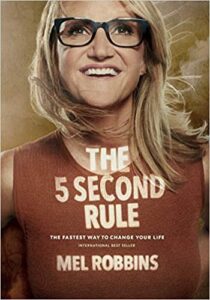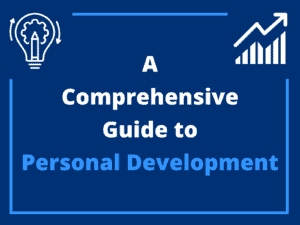Winning: what it takes and why we fail
This post contains affiliate links that help supports this blog and cost you the exact same. If you do not wish to use affiliate links, then feel free to google the product.
What does success mean?

Let’s get it out of the way and address the elephant in the room, success.
Success is currently a dirty word that has divided us. Some people strive to be the best they can be, and some say the hustle culture is corrupting the world and money is evil.
I talk about success in a fair amount of my posts. I do this because I truly believe success is essential to our fulfillment and can be achieved by anyone with the right mindset.
When I talk about success, I am referring to individual success. Success, in my definition, is accomplishing what is important to you and what makes you proud of yourself. Success is not linked to someone else’s view of what you should be doing.
Success is doing what you want and being the person you want to be.
Why people fail
I have failed so many times that I have lost count. Failure is an integral part of life. There is good failure where you learn and grow from and bad failure where you do not learn and instead blame external factors for the failure.
However, over the last decade, it seems like our North American society has been spiraling into more bad failure loops.
Let me know if this sounds familiar.
I have a vacation coming up, and I would really like to lose 10lbs before I go.
-
I set the goal to lose weight before my vacation.
-
I started off really strong and stayed strict with my diet for two weeks and successfully lost 4 lbs. But then it’s a friend’s birthday, so I go out for dinner, a few drinks, and cake.
-
This spirals and throws me off track for the entire weekend. I feel justified that I will indulge this weekend and just get back to the strict diet on Monday.
-
But that doesn’t happen because, on Monday, I weigh myself, and I have gained back half of the weight I just lost.
-
Now feeling discouraged, I go back to overeating for the entire week. The bloating causes my weight to creep back up to my starting number.
-
Fed up, I claim that losing weight is impossible, and I give up on the goal.
This has happened to me more than once, and I feel confident that I am not alone. However, the worst part of this cycle is that even though I only ended up as weight as before, it is far worse mentally. I now feel like a failure because I tried to lose weight and couldn’t.
So what happened? Why did I fail?
-
Is it because I chose the wrong diet to follow?
-
Is it because of the birthday party?
-
Is it because it’s impossible to lose weight?
-
Is it because I didn’t try hard enough?
The reason I failed is the same reason almost everyone fails. I simply didn’t want the end result badly enough to bear the pain to get it. It was harder to say no to the birthday party and cake than staying true to my goals.
The pain of change was greater than the pain of staying where I already was.
A story that Tony Robbins tells highlights how the right motivation (or pain) can force immediate change. Please note this is paraphrased from memory and not verbatim.
A lifelong smoker has been trying to quit smoking for decades. He knows it’s bad for him, but every time he tries to quit smoking, something stressful comes up, and he slides into his old habits.
One day while having a cigarette in his study, his 5-year-old daughter comes in crying.
What’s wrong, he asks her?
Your gonna die, and I don’t want you to die, she responds.
Ohh sweetie, I’m not dying. I’m perfectly okay, he reassures her.
No daddy, you are going to die, and you won’t be at my wedding, she tells him while sobbing and pointing at the cigarette burning in the ashtray.
After that interaction with his daughter, he immediately quit and never smoked again.

While I do not know if that story is true, it does show a solid point. Everyone knows that smoking will significantly shorten their life, and no one thinks that smoking improves their lives. While the majority of people who smoke want to quit, the pain to quit is also tremendously intense.
Only when the pain of continuing your current pattern becomes greater than the pain of change will you quit.
Why you should want to win
Winning gets a bad reputation, and I understand why. But, unfortunately, most of us born before 2000 were used to a society that was winner take all. Growing up only the winner mattered, whether in basketball, skiing, the school science fair, or the job hunt.
Then in more recent years, our society changed. Now winners are ostracized, and instead, participation is what gets acknowledged and not the best results. Now, everyone gets the blue ribbon.
So which is better? Giving the ribbon to the best, or giving the ribbon to whoever tried?
I think the happy place is setting your own metrics for what winning means and not worrying about the ribbon at all. In life, things are seldom zero-sum games. There can be multiple winners, and just because someone beats you in one area doesn’t mean you can’t also win your own game. For example, Michael Jordan still lost his fair share of basketball games and missed many shots.
By setting your own goals, you can be happy where you are and what you accomplish. For example, I love to sing, but I am terrible at it. So winning to me is to enjoy when I sing along to songs in the car.
Further on this, I care a great deal about design. I strive to design the best heavy-duty axles in the world. Even though the scale of these two goals is vastly different, I can still win at them both. The difference is about setting my own goals and being happy with them. I would be miserable if I set my goals based on someone else’s ambitions or if I constantly moved the goalposts and did not celebrate where I currently am.
Goal Setting
Goal setting is a critical step in achieving what you want. Unfortunately, goals are often incorrectly set.
You can have almost anything you want in life if you work strategically and want it more than anything else. If we follow that thought, it means that we need to focus on what actually matters and not set goals for things we think we should do, or worse, set goals based on what others think we should do. For example, we should do this, or we should do that.
A life full of shoulds leads to a shouldy life.
When we decide we want something, we need to make the goal bigger and bigger until it scares us.
Everything you’ve ever wanted is on the other side of fear.
— George Addair
When you set a goal and decide to go for something, it will take exponentially more effort and time than you first estimated. This is because skills are hard, and they take a long time to build. When you watch an expert, you see the culmination of years or even decades of practice. It looks so simple for them to do it, but it is anything but simple for the average person. If you want to watch a fantastic documentary showcasing this, watch Jiro Dreams of Sushi. He spent years learning how to just cook rice correctly before he was even allowed to touch fish.
We need to set massive goals that scare us and require massive action to have the best chance of getting the desired results from a goal. Most people will come up short on their goals, so we need to set them big enough that we are proud of what we accomplished even when we fail. Some advice for setting goals is:
-
When you make your initial goal, ask how you can make it bigger
-
Don’t be afraid of setting goals that require help from others
-
Don’t be afraid of setting goals that people will doubt and not believe you are capable of
-
Set goals so big that you need to become a different type of person to even attempt it
In my opinion, goals should fulfill what we lack in life and help us be more complete people. Whether it is security, freedom, wealth, health, or simply to have more fun (this is one of my current goals).
It’s what you don’t do
You see some people that appear to be so successful in many different areas: maybe they sing, dance, and act. Or perhaps they design, build, and write. The secret to success is not in what you see. But instead, what you don’t see. We all have the same amount of time in the day, and these people choose to focus on their most important goals. Instead of watching TV and consuming content, they are practicing and producing.
I think so much of winning and being the best is simply putting in more effort, for more time, than anyone else would think is reasonable. For example, I just finished reading Will Smith’s autobiography. It is no accident that he became one of the biggest movie stars of all time. This is because he would put in more effort than anyone else would think is reasonable. Not just in being a great actor, singer, and performer. But also in promoting the work, practicing, and having the best team of coaches and support staff around him.
The dark side to all of this is that being great takes enormous amounts of energy. And that energy pulls away from other areas of your life. So before you commit to a new goal, make sure it is what you actually want and that you do not chase something that is not important at the expense of something that is.
Lack of time versus lack of focus
Often a lack of time gets blamed for lack of accomplishment. But as I’ve written about in other posts, time is a constant and not a variable. So we must think of it as such. Everyone has the same amount of time in a day, week, and month. The variable is what you spend that time doing.
When I was in school, I was a decent student but certainly not the best. I managed to find time outside of studying for scuba diving, working out, rock climbing, and nachos on Friday. But some people managed to study for a fraction of the time I did and get the same grades while playing soccer, hockey, volleyball, frisbee, workout, rock climb, and have nachos. The difference was the focused time.
While studying, I was typically focused for 50% of the time, and some were focused for 100% of the time. The crazy thing about this is it took me twice as long to do the same amount of work as someone who was focused 100% of the time. So when I would spend 10 hours in the library on Saturday, half of that time was less than productive, it was spent on Youtube, social media, and chatting with my friends. Someone else could spend 5 hours and get the same amount of output as I could in 10 hours. They could then use that extra five hours to do fun activities that fulfilled them.
This principle applies to almost everything else in life as well. For example, when you are trying to accomplish your goals, look at where your focus is. Are you actually committing to doing the work that matters, or are you ”working” on something while scrolling Instagram. Are you trying to learn something while having a TV show on in the background? You can get far more out of life by being focused on one task at a time.
Another side to this is to see where your attention is going. In my own life, I have tried to constantly remove things I “should do” that do not contribute to me being the person I want to be. This is difficult and takes reflection and humility. To achieve more of what you want, you need to do less of what you don’t want. Often times this comes at the expense of social pressures and trading something easy right now for something that is hard but will have more benefit down the road.
The truth about luck
People love to blame success and failure on luck.
-
When someone else succeeds, it’s because they got lucky,
-
When they fail, it’s because of bad luck.
But here is the truth. Luck is a multiplier and only works when you put in the work. If you haven’t been working, there is nothing to get lucky on.
All of the “lucky” people I know have actually been putting in the work for years before they hit their “lucky” break. Luck is a lever of opportunity.
For example, I have spent roughly 200 hours on this blog in the last 6 months, which doesn’t include the hours spent reading and learning, the 6 years in university, or the decade living and growing my principles in the workforce.
However, I haven’t had a lucky break.
I am very fortunate and have 200-300 different readers a month, but that pays me all of $0. In fact, this blog has cost me $1000s. However, I promise you if I ever do get a large following, people will say that I got “lucky.”
Luck and opportunity only favor the prepared.
“Luck is what happens when preparation meets opportunity”
— Seneca
How to constantly win
The key to winning is simple, but that does not make it easy.
-
You need to set goals so big that you are still leagues ahead of what other people thought would be reasonable when you fall short.
-
Only go after goals that you genuinely care about.
-
If you truly want something, you won’t fail. Instead, you will keep trying until you figure out how to get it.
-
Be ready for your goal to take exponentially more effort and time than you anticipated.
-
Be prepared for no one to care. In the beginning, people will support you and encourage you. At the end (when you have accomplished it), people will praise you for how much work you put in. In the middle, no one cares. It is your journey and your destination, and you are alone on the path up the mountain.
Thanks for reading. I would love it if you commented below on what you want to accomplish this year.









